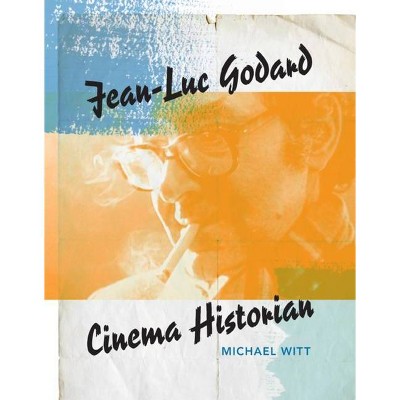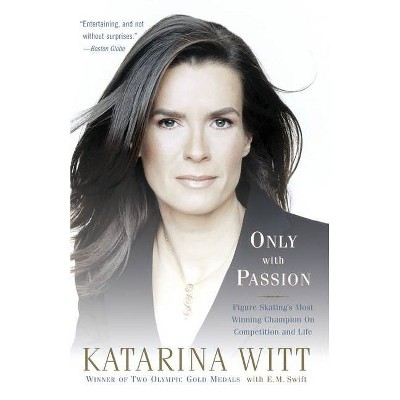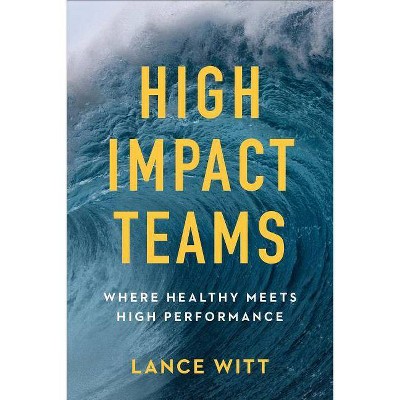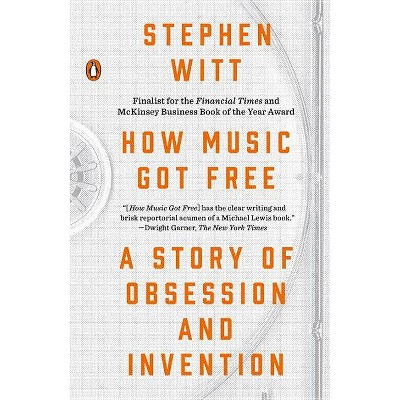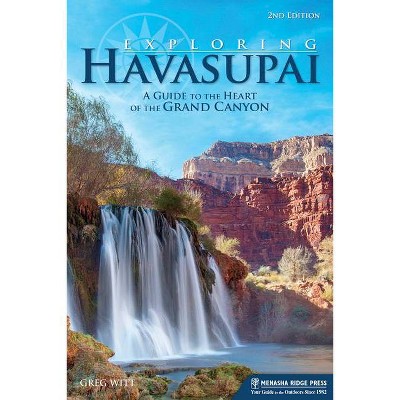Nollywood - by Emily Witt (Paperback)
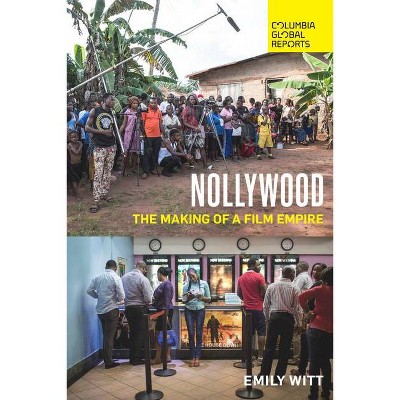
Similar Products
Products of same category from the store
AllProduct info
<p/><br></br><p><b> About the Book </b></p></br></br>"How did Nigeria create the second largest movie industry in the world? Nollywood began in Nigeria in the 1990s and has grown into the second largest film industry in the world in the number of films produced annually, behind only Bollywood and ahead of Hollywood. Reporter Emily Witt travels to Nigeria to offer a vivid, rollicking tour of the industry today. She meets with young filmmakers and actors trying to break into the industry, covers start-ups trying to digitalize what has been largely an economy based on piracy, and documents the shooting of a historic epic in the northern city of Jos, which is emerging after years of civil conflict and a brutal attack by Boko Haram. The Nigerian movie industry, like Nigeria itself, is an organized chaos, but amid electricity cuts, fuel scarcity, and countless other obstacles its producers are pursuing the very real possibility that Nigerian movies could become a global brand as recognizable as the Bollywood musical, the Hong Kong kung fu flick, or the Hollywood blockbuster."--Page [4] of cover.<p/><br></br><p><b> Book Synopsis </b></p></br></br><b>How did Nigeria create the second largest movie industry in the world?</b> <p/>Nollywood began in Nigeria in the 1990s and has grown into one of the most recognized cultural centers of the world, producing more movies every year than Hollywood and almost as many as Bollywood. Emily Witt travels to Nigeria to offer a vivid, rollicking tour of the industry today, from the back alleys of the marketplaces of Lagos to the glamour of a red-carpet premiere, from startups trying to digitalize what has been largely an economy based on piracy to the shooting of a historic epic in the northern city of Jos. <p/> Amid electricity cuts, fuel scarcity, and countless other obstacles, Nigerians are pursuing the very real possibility that Nollywood dramas could become a global brand, as recognizable as the Bollywood musical, the Hong Kong kung fu flick, or the Hollywood blockbuster. <p/> <b>Emily Witt blends monograph with vivid reportage in her latest offering: a short but sweet study of Nigerian cinema. --<i>Financial Times</i></b><p/><br></br><p><b> Review Quotes </b></p></br></br><br>Emily Witt blends monograph with vivid reportage in her latest offering: a short but sweet study of Nigerian cinema. <b>--<i>Financial Times</i></b> <p/>The strength of Witt's book is her exploration of Nollywood's attempts to formalize its haphazard business model....an insightful and entertaining book about a rapidly evolving industry. <b>--<i>Times Literary Supplement</i></b> <p/>Witt's book addresses the major shifts in Nollywood: how the change in Nigeria's film distribution model affected both the content and the industry's digital future, among other topics. Witt, who spent five weeks in Nigeria researching <i>Nollywood</i>, seamlessly blends travel writing with cultural and media history for a product that is as informative as it is effortless to read. <b>--<i>VideoAge International</i></b> <p/>An excellent, engaging introduction to an industry that deserves continued attention. <b>--<i>Africa is a Country</i></b> <p/>An intriguing introduction to the Nigerian film industry, or 'Nollywood, ' which produces more films annually than Hollywood and falls short only of Bollywood in its output.... Witt's fascination with the business is contagious, and the view she provides into this fledgling market--punctuated with summaries of the overwrought plotlines of some popular movies--makes for an entertaining book. <b>--<i>Publishers Weekly</i></b> <p/>Nollywood films are made by and for Nigerians but with stories that are compelling for Africans all over the continent and beyond. In <i>Nollywood</i>, Emily Witt introduces us to this phenomenon, describing the sorts of films Nollywood makes, the history of how these films have changed over time, and an overview of the directors, producers, marketers and pirates who make the industry what it is today. Writing with an eye for detail and an imagination for the big picture, Witt has produced a wonderful entry point for anyone interested in this dynamic media industry. <b>--Brian Larkin, director, Institute of African Studies, Columbia University and author of <i>Signal and Noise: Media, Infrastructure, and Urban Culture in Nigeria</i></b> <p/>[Emily Witt is] one of America's foremost prose stylists under the age of forty. <b>--<i>New York Magazine</i></b><br><p/><br></br><p><b> About the Author </b></p></br></br><b>Emily Witt</b> is a writer in New York City. She has written for <i>The New Yorker, The New York Times, GQ, n+1, The London Review of Books, </i> and many other places. She has degrees from Brown University, Columbia University Graduate School of Journalism, and Cambridge University, and was a Fulbright scholar in Mozambique. Her first book, <i>Future Sex</i>, was published in 2016 by Farrar, Straus & Giroux
Price History
Cheapest price in the interval: 14.49 on October 23, 2021
Most expensive price in the interval: 14.49 on December 20, 2021
Price Archive shows prices from various stores, lets you see history and find the cheapest. There is no actual sale on the website. For all support, inquiry and suggestion messages communication@pricearchive.us




